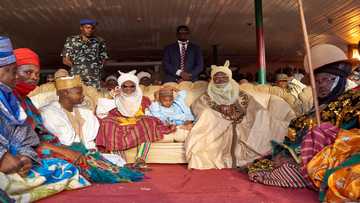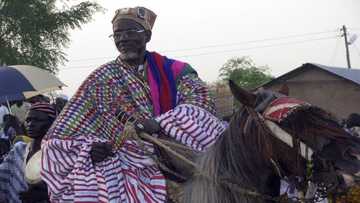Spoken languages in Ghana
Ghana has around 60 ethnic groups, each expressing their languages in Ghana. However, the body in charge of communications, the Bureau of Ghana languages established 69 years ago has listed only nine languages throughout the nation. English is the official language of Ghana, despite the various dialects embraced by the citizens of the country. English predominates the country’s business and government affairs.

When it comes to education, it is also the accepted standard language. However, Ghana languages are also taught in school, during the primary education level. Right from primary school to senior secondary school level, Ghanaian languages are mandatory. Another favorite language in the country is French which is spoken by at least 13% of the population.
Languages in Ghana

How many languages are spoken in Ghana? Ghana is a vast multilingual country, which has over 80 languages being spoken by different groups. Of the indigenous languages in this country, Akan, which is among the most spoken languages in Ghana. Some of the languages are in the same group making conversation between people from different regions easier.
For instance, the native language of Ghana, the Mampelle and Dagbanli languages spoken by people in Northern Ghana are intelligible. Th same language is further comprehensible by inhabitants of the Upper East Region, who speak Waali, and Frafra.
The four languages are categorized under the Mole-Dagbani ethnicity. Out of all the languages, 11 of them are government sponsored, and they include Akan ethnic languages include, Akuapem, Twi, Asante Twi, mfantse, and Nzema Other are the Mole-Dagbni ethnic languages that include Dagbanli and dagaare The remaining languages include Ga, Dangme, Ewe, Hausa, Kasem, and Gonja.
READ ALSO: 5 reasons behind tribal scars custom in Ghana
The languages in Ghana sponsored by the government
Below are 11 eleven-sponsored government languages that belong to the Niger-Congo language family.
- Gonja language - is spoken by an estimated 230,000 people. All person speaking this language are related to the Guang languages in the south of Ghana. It is spoken by almost a third of the population residing in that location.
- Kassem language- which belongs to the Kassena ethnic group is spoken in the Upper East region of the northern Ghana, and Burkina Faso.
- The Nzema language - is also referred to as the Nzema people speak Appolo. It is categorized under Central Tano language. It shares about 60% comprehension with Jwira-pepesa and is in close proximity with Baoule.
- Ga language is a spoken language by people within the Kwa branch. People staying in the southeastern Ghana. Ga is also the oldest Ghanaian language.
- Dagaare language - is the maternal language of the Dagaaba peoplein Burkina Faso, and Ghana. It has been termed as a continuum dialect that includes Birifor and Waale. The three languages under this category include Dagaari Dioula is mostly spoken mainly spoken in Burkina Faso. Southern Daagare language is mostly spoken in Ghana.
- Dangme language - is spoken by cover 800,000 in the aboriginal language in Ghana. The Ga and Dangme people can easily communicate with one another
- The Dagbani language - is also called Dagbanli is spoken in Ghana. It is one of the common languages in Ghana with an estimated number of 1,160,000 speakers. It as a compulsory subject at both high school and primary school level. The language is closely related to the Mampelle language which is spoken by language is spoken in the Northern region of Ghana. Other languages similar to Dagbani include Frafra and Waala
- Ewe language - which is language spoken in Ghana with is trace being in West Nigria
- Twi language - is part of the Kwa branch of the Niger-Congo family. It is part of the Akan languages in Ghana. Other languages in the Akan category are Asante, Fante, and Twi.
The Ghanaian government has incorporated the indigenous languages into their curriculum to ensure endangered languages in Ghana don’t become completely forgotten.
READ ALSO: List of All Ethnic Groups in Ghana And Their Regions
The list of ethnic groups and languages in Ghana
Ghana’s population comprises of up to 27.4 million people, with women being more than men, where they represent 50.3% of the population. The country is diverse with different languages spoken in Ghana. Below is a list of ethnic groups and languages in Ghana
1. Mole-Dagbon
The Mole-Dagbon occupy the Northern region found in the Dagbon kingdom. The inhabitants account for 16.6% of the Ghanaian population and speak Dagbani. Mole-Dagbani have a sophisticated oral tradition where there women utilize their music instruments including drums.
There influence in the country has made it be recognized among the top 3 languages in Ghana. Most of their language is influenced by Islamic way of life. Some of the significant ceremonies observed by this ethnic group include Bugum, Damba, and the Islamic festival.
2. Akan
It is one of the known names of languages in Ghana, and it consists of Ashanti's which is the largest subgroup. The people of this group speak with a Twi dialect, with almost 10 million people who are conversant with this language.
3. Ewe
These people are located in Volta Region and Togo. in Ghana. They still live in villages and they elect their chiefs buy consensus. They are not related to Akans despite their mutual influence between each other
4. The Gurma
These people live in the Northern part of Ghana
5. The Ga-Dangme
These are among the ethnic group of people who occupy the coastal region speaks other languages in Ghana.
Most languages in Ghana are from different in each ethnic groups. Although it might be hard for different people from different areas to understand the different languages, Ghanaian are people who loves unity and they love each other despite the many different ethnic groups around the country.
Source: YEN.com.gh





